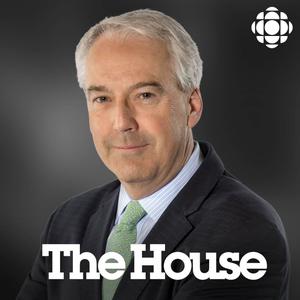
The House from CBC Radio
CBC Radio
The House is Canada's most popular political affairs show. Every Saturday host Chris Hall takes you to Parliament Hill — and around the country — for in-depth coverage and analysis of the week’s major political news.
- 52 minutes 47 secondsOntario's power play against Donald Trump
Ontario premier Doug Ford made a splash this week when he suggested his province could withhold energy exports to the United States if president-elect Donald Trump slaps steep tariffs on Canadian goods. Is Ontario gearing up for a trade war with the U.S? Ontario’s energy minister explains how far the province is willing to go on the issue.
Then, the CEO of Abacus Data joins the program to discuss his new poll that shows Trump is more popular in Canada than Prime Minister Justin Trudeau, and what it means for Trudeau’s tariff negotiations with the Trump administration.
Plus, with days to go until Finance Minister Chrystia Freeland presents her fall economic update, two economists debate the deficit, which fiscal anchors matter the most and what Canada should do about Trump’s concerns on trade.
Finally, the Liberals have tightened rules around the temporary foreign worker program, but why is it so susceptible to abuse? The House does a deep dive into the program to understand the problems and benefits for businesses and workers.
This episode features the voices of:
- Stephen Lecce, Ontario Minister of Energy
- David Coletto, CEO of Abacus Data
- Armine Yalnizyan, economist and Atkinson Fellow on the Future of Workers
- Goldy Hyder, president of the Business Council of Canada
- Catherine Connelly, professor of human resources and management at McMaster University
- Dan Kelly, president of the Canadian Federation of Independent Business
14 December 2024, 11:10 am - 49 minutes 21 secondsAre we just playing Donald Trump’s game?
Prime Minister Justin Trudeau is calling for interparty unity in the face of Donald Trump’s threat to impose tariffs on Canadian goods. But it didn’t take long for the Liberal-Conservative divisions to appear. So is it still realistic to talk about Team Canada? Two Ottawa bureau chiefs weigh in on Canada’s attempt to show a united front against the incoming U.S. president.
Next, Foreign Affairs Minister Mélanie Joly joins Catherine Cullen to discuss Canada’s new Arctic foreign policy, the crisis in the Middle East and whether there’s a way to stop Trump’s tariff threat before the president-elect takes office in January.
Then, representatives and experts of Canadian universities and colleges explain how the federal government’s dramatic cut in international student visas will affect their institutions, including whether they need to shave programs. Minister of Immigration Marc Miller and Ontario Minister of Finance Peter Bethlenfalvy also share their thoughts on who’s to blame for the funding crisis facing Canadian post-secondary institutions.
This episode features the voices of:
- Tonda MacCharles, Ottawa bureau chief for the Toronto Star
- Stuart Thomson, parliamentary bureau chief for the National Post
- Mélanie Joly, Minister of Foreign Affairs
- Meti Basiri, CEO and co-founder of ApplyBoard
- Alan Shepard, president of Western University
- Pari Johnston, president and CEO of Colleges and Institutes Canada
- Marc Miller, Minister of Immigration
- Peter Bethlenfalvy, Ontario Minister of Finance
7 December 2024, 11:10 am - 48 minutes 39 secondsA rare look inside Canada's immigration holding centres
First up, Trudeau makes a surprise visit to see Donald Trump the same week the president-elect promised to slam Canada with 25% tariffs on all goods. Then, Canada’s former ambassador to the U.S. discusses whether the threat is real, and what Canada should do about it.
Next, it’s a building that very few Canadians ever get to go inside. The Immigration Holding Centre in Toronto detains migrants who are either considered a flight risk, a danger to the public, or can’t be identified. The House gets an exclusive tour of this centre to understand the conditions they face and how their fates are determined.
Also, an immigration lawyer shares his concerns with Canada’s deportation process; and a top Canadian border official discusses Canada’s approach to deportation and whether his agency is prepared for Trump’s plan to deport millions of undocumented immigrants in the United States.
This episode features the voices of:
- Alexander Panetta, CBC Washington correspondent
- David MacNaughton, former Canadian ambassador to the United States
- Sajjad Bhatti, acting director of immigration enforcement operations division at the Canada Border Services Agency for the GTA
- Minley Lloyd, acting assistant director of immigration enforcement operations division at the Canada Border Services Agency for the GTA
- Jared Will, immigration and refugee lawyer
- Aaron McCrorie, vice-president of intelligence and enforcement at the Canada Border Services Agency
30 November 2024, 11:10 am - 48 minutes 42 secondsA tax holiday, Trump tariffs, and killer robots
The Liberals are planning to make Christmas shopping a little less expensive this year — they announced a tax holiday starting mid-December on top of rebate cheques set to roll out in the spring. Who comes out on top from this decision? CBC’s chief political correspondent joins The House to break down the politics behind the move. Then, a former Bank of Canada governor explains the economic consequences of the proposal and whether it will affect Canada’s inflation rate.
Plus, The House travels to Halifax, where international security officials are meeting each other at an important conference, and speaks to a Republican senator about what Donald Trump means for the war in Ukraine and Canada’s border security. A Google executive also comes on the show for an exclusive interview about the risks and rewards of AI development as several countries race to become the dominant power in evolving the technology.
Finally, a Canadian civil servant who was falsely accused of terrorism in the Indian media joins the program with his lawyer to share his story and discuss how foreign governments are working to sow doubt in Canada’s institutions.
This episode features the voices of:
- Rosemary Barton, CBC’s chief political correspondent
- Stephen Poloz, former Bank of Canada governor
- Jim Risch, Republican senator from Idaho
- Kent Walker, President of Global Affairs at Google
- Sunny Sidhu, a Canadian civil servant
- Jeffrey Kroeker, Sidhu’s lawyer
23 November 2024, 11:10 am - 50 minutes 37 secondsTeam Canada gets ready for Team Trump
President-elect Donald Trump is assembling his inner circle and making some cabinet nominations that are sending shockwaves around the world. As officials here prepare for tough talks on trade and border security – what could those picks mean for Canada? Two journalists in Washington and Ottawa to weigh in. Then, Manitoba Premier Wab Kinew joins the program to talk U.S. trade, tariffs and the border.
Plus, Palestinian Canadians who are trying to bring family members from Gaza into Canada explain why they’re frustrated – and losing hope – over a special visa program. An immigration and refugee lawyer also details what she sees as the program’s main problems.
Finally, former B.C. premier John Horgan died this week at the age of 65. A former colleague shares memories of his leadership and kindness.
This episode features the voices of:
- Alex Panetta, CBC Washington
- Rob Russo, Canadian correspondent for The Economist
- Wab Kinew, Premier of Manitoba
- Omar Omar, Palestinian Canadian
- Ahmed Badah, Palestinian Canadian
- Debbie Rachlis, immigration and refugee lawyer
- Ravi Kahlon, B.C. Minister of Housing
16 November 2024, 11:10 am - 52 minutes 2 secondsKeep calm and carry on: How Canada is reacting to the new Trump era
Donald Trump’s decisive election win has Canadian officials wondering what comes next for the two countries. He’s promised mass deportations, a global tariff and an end to the war in Ukraine — all of which have implications for Canada. So what are the next steps? The House hears from a variety of Canadians who could be affected by a second Trump administration. Then, Deputy Prime Minister Chrystia Freeland joins the program to discuss the federal government’s approach to Trump’s incoming presidency.
Plus, after an election campaign rife with claims that Donald Trump is a fascist and voters expressing concern about the state of American democracy, two authors discuss whether the United States can withstand another Trump presidency and if any instability could have an impact on Canadian politics.
This episode features the voices of:
- Chrystia Freeland, Deputy Prime Minister
- Rob Goodman, author of Not Here: Why American Democracy Is Eroding and How Canada Can Protect Itself
- Alasdair Roberts, author of The Adaptable Country: How Canada Can Survive the Twenty-First Century
9 November 2024, 11:10 am - 51 minutes 41 secondsHow the U.S. election affects Canada – and some marriages
It’s an election abroad — with serious impacts for Canada. Millions of Americans will be casting their ballots on Tuesday, sending either Donald Trump or Kamala Harris to the White House. Is one candidate better for Canada than the other? The House talks to Prime Minister Justin Trudeau’s former top aide to get his insights on what a Trump or Harris presidency will mean for our country. Then, a couple from Pennsylvania who are voting for Trump and Harris share how they get along despite their political differences.
Plus, a former immigration minister discusses why he thinks Trump’s promise of mass deportation of migrants should be taken ‘very, very seriously’ and how such a move could affect the Canadian border.
And finally, Conservative leader Pierre Poilievre has pledged to cut the GST on new homes sold for under $1 million dollars — a promise that he says he’ll keep by cutting other key housing programs. Two housing experts join The House and weigh in on whether this is the right way to tackle Canada’s ongoing housing crisis.
This episode features the voices of:
- Gerald Butts, former principal secretary to Justin Trudeau
- Melissa Muhly, a Harris voter
- Conrad Muhly, a Trump voter
- Jason Kenney, former Conservative immigration minister
- Carolyn Whitzman, professor at the University of Toronto’s School of Cities
- Andy Yan, director of The City Program at Simon Fraser University
2 November 2024, 10:10 am - 48 minutes 35 secondsTrudeau won’t go. What now?
That long-awaited Liberal caucus meeting where a group of MPs asked Trudeau to step down as party leader came — and went. In less than 24 hours after hearing their concerns, Trudeau told reporters that he would continue as Liberal leader. So… Now what? And where does this leave the Liberal Party? The House goes behind closed doors and breaks down the tense caucus meeting, then two political strategists talk about what comes next.
Plus, as the federal government announces a steep cut to immigration over the next three years, minister Marc Miller sits down with The House to explain the major policy change and what message he says it sends to prospective newcomers who want to enter Canada.
And finally, after a slate of back-to-back-to-back provincial elections in British Columbia, Saskatchewan and New Brunswick, CBC reporters in all three provinces join The House to discuss what federal parties can learn from the results as a national campaign looms.
This episode features the voices of:
- Vandana Katter, political strategist
- Fred DeLorey, political strategist
- Alicia Backman-Beharry, an immigration lawyer with Holthe Immigration Law
- Marc Miller, Minister of Immigration, Refugees and Citizenship of Canada
- Meera Bains, CBC News
- Jacques Poitras, CBC News
- Adam Hunter, CBC News
26 October 2024, 10:10 am - 52 minutes 24 secondsTrudeau's showdown with the Indian government — and his own caucus
On Monday, RCMP officials dropped bombshell allegations that Indian government agents are working with mobsters to target Sikhs separatists in Canada — followed quickly by both countries expelling diplomats. The House visits a Sikh temple where a Khalistani activist was gunned down to hear how the community is reacting to this week’s developments. Then the assistant RCMP commissioner explains why the Mounties decided to suddenly go public and responds to India’s fierce denials.
Plus, CBC’s top political hosts sit down together to discuss a secret plot by some Liberal MPs who want to see Prime Minister Justin Trudeau resign as party leader.
Then, The House meets up with former cabinet minister and astronaut Marc Garneau at the Canadian Aviation and Space Museum to chat about his long career, Trudeau’s leadership and the growing rift with India.
And finally, as British Columbians prepare to go to the polls on Saturday in an NDP-Conservative showdown, The House dives into the riding of Richmond-Centre to speak with candidates and find out what issues are motivating voters.
This episode features the voices of:
- Gurkeerat Singh, youth leader at the Guru Nanak Sikh Gurdwara
- Brigitte Gauvin, RCMP Assistant Commissioner
- David Cochrane, host of CBC’s Power and Politics.
- Rosemary Barton, CBC’s chief political correspondent and host of Rosemary Barton Live.
- Marc Garneau, former astronaut and cabinet minister.
- Hon Chan, B.C. Conservative Party candidate for Richmond-Centre.
- Henry Yao, NDP candidate for Richmond-Centre
- Wendy Yuan, unaffiliated candidate for Richmond-Centre
19 October 2024, 10:10 am - 49 minutes 31 secondsIs Canada’s immigration consensus in jeopardy?
It’s almost part of Canadian lore that as a nation, across the political spectrum, we recognize the value of immigration. Now, as provinces demand Ottawa curb the number of newcomers, is that consensus breaking down? The House visits an Ottawa shelter to hear how they’re doing their best to keep up with demand as more newcomers turn to them for help.
A pollster then details Canadians’ changing attitudes toward immigration. Then, host Catherine Cullen runs through key moments in nine years of Liberal policy decisions.
Plus, a research chair on the politics of immigration discusses the growing tensions between the federal government and provinces over asylum seekers.
And finally, two politics reporters explain why the House of Commons has been stuck going in circles over a debate concerning parliamentary privilege and documents related to a now-defunct green technology fund.
This episode features the voices of:
- Ashley Potter, frontline services manager at the Ottawa Mission
- Shachi Kurl, president of the Angus Reid Institute
- Mireille Paquet, Concordia University research chair on the politics of immigration
- Aaron Wherry, senior writer for CBC Politics
- Laura Osman, politics reporter for The Canadian Press
12 October 2024, 10:10 am - 50 minutes 17 secondsStuck between the Bloc and a hard place
The Bloc Québécois is ramping up pressure on the Liberal government to meet its demands over more money for seniors – or face an election. But that would cost a lot. Like, billions. The House sits down with Daniel Thibeault, host of Radio-Canada’s politics program Les Coulisses du Pouvoir to understand whether the Bloc is angling for an election.
Then, as the world prepares to mark one year since Hamas’ horrific attack on Israel, The House has the highlights of an emergency debate in the House of Commons about the crisis. Then, two Middle East experts discuss what can be done to prevent a wider war from breaking out.
Plus, fish harvesters in Newfoundland’s northern peninsula say politics is getting in the way of them making a living. The House hears the fishermen’s frustrations, then asks Liberal and Conservative MPs about concerns over the lifting of the decades-old cod moratorium.
This episode features the voices of:
- Daniel Thibeault, host of Radio Canada’s Coulisses de Pouvoir
- Thomas Juneau, University of Ottawa professor
- Dennis Horak, Former Canadian head of mission in Iran
- CBC's Caroline Hillier
- Liberal MP Mike Kelloway
- Conservative MP Rick Perkins
5 October 2024, 10:10 am - More Episodes? Get the App
Your feedback is valuable to us. Should you encounter any bugs, glitches, lack of functionality or other problems, please email us on [email protected] or join Moon.FM Telegram Group where you can talk directly to the dev team who are happy to answer any queries.
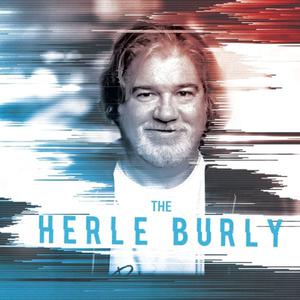 The Herle Burly
The Herle Burly
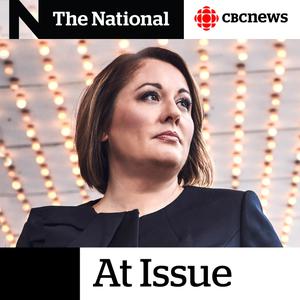 CBC News At Issue
CBC News At Issue
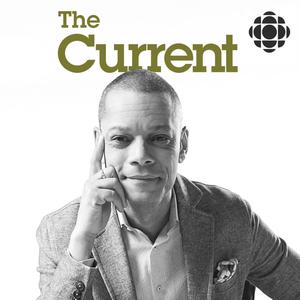 The Current
The Current
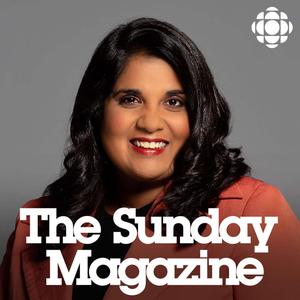 The Sunday Magazine
The Sunday Magazine
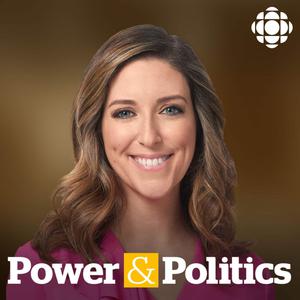 Power and Politics
Power and Politics
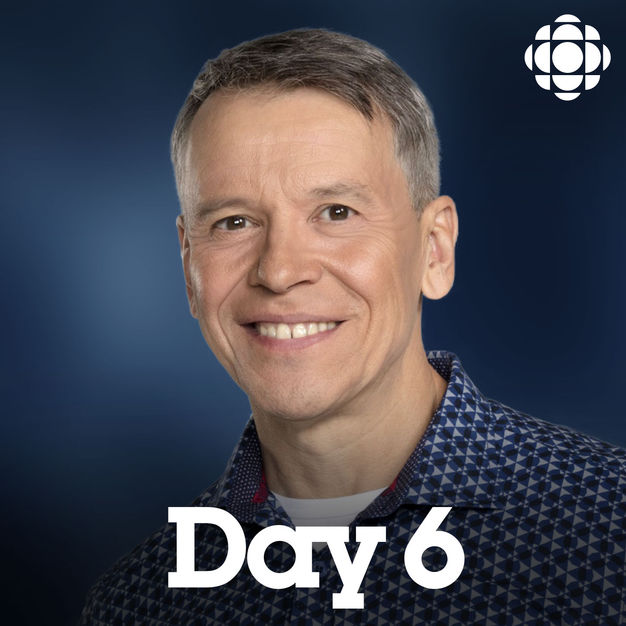 Day 6 from CBC Radio
Day 6 from CBC Radio